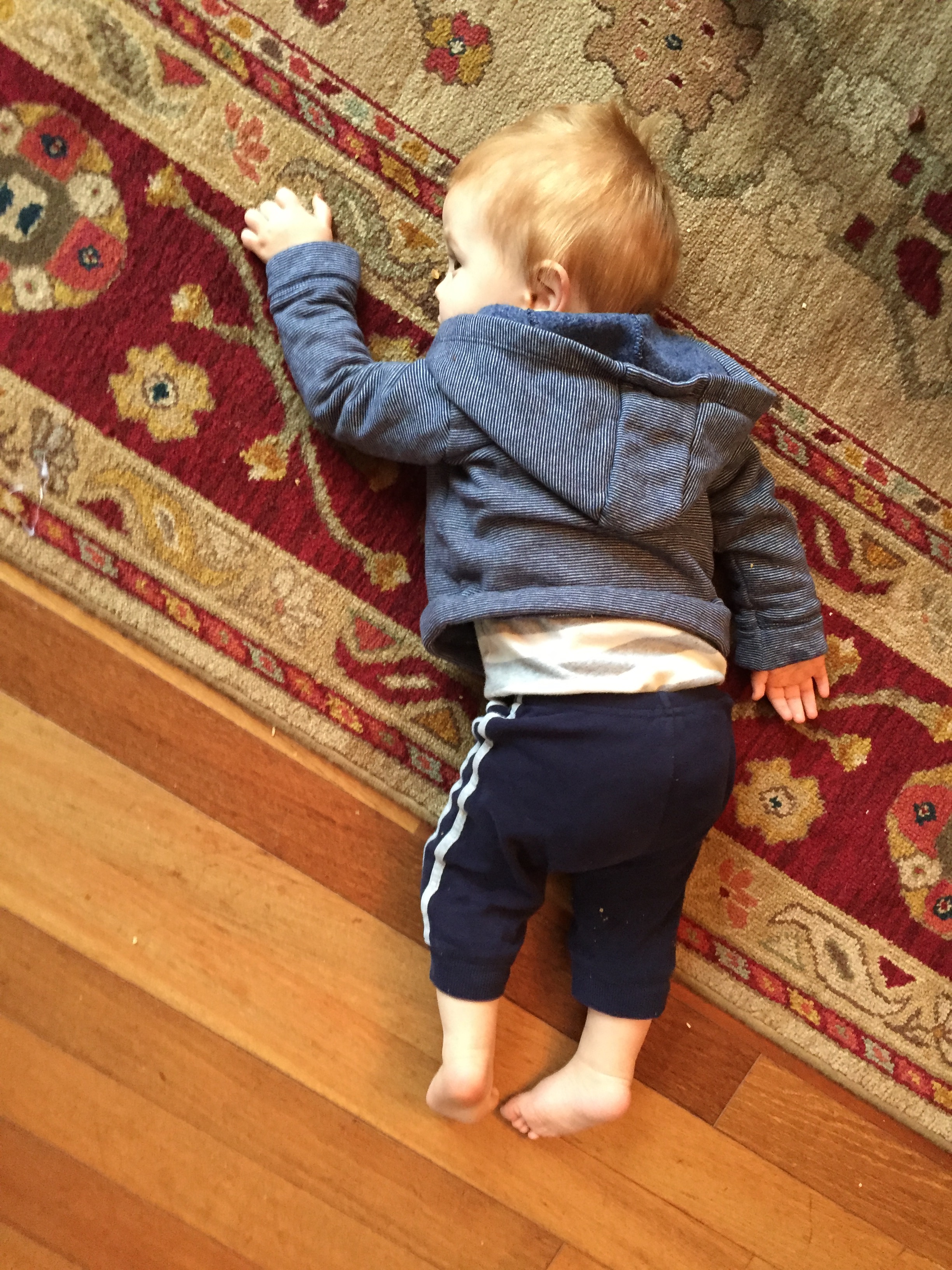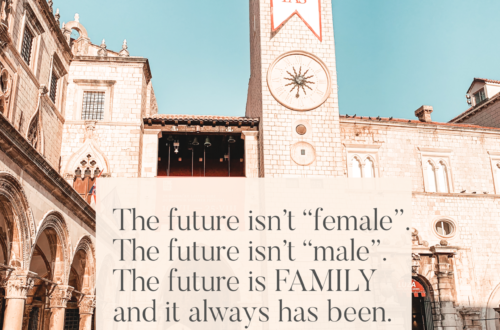
What’s So Bad About Catholic Guilt? A.K.A. God Doesn’t Want Us to Stay in our Shame
Apparently, Catholic Guilt is a thing — at least, it’s a thing in a lot of circles and as often as I’ve heard it referred to, it always seem to be in a negative light.
Perhaps it’s because people tend to confuse guilt with shame, and hence the bad wrap for Catholic guilt — but I’m here to say Catholic guilt can be a good thing — and before you write this post off as cray-cray, please hear me out.
In my opinion, guilt is to the soul what pain is to the nervous system — it’s lets us know that somethings is not quite right and we need to change it.
If this Irish-skinned girl didn’t feel the pain of a good sunburn every once in a while, I would likely have never changed my approach to time spent in the hot summer sun.

Similarly, if I never felt the twinge of guilt when I have said or done something that I shouldn’t have, I most likely wouldn’t be so motivated to change those things about myself, either.
Feeling guilty can be downright painful. None of us want to feel it, and yet this pain is the very thing that sometimes helps to begin the process of change in our lives.
If we never felt guilt, we most likely would never change.
I know some people think guilt is something that’s imposed on us from the outside, and no doubt there is some truth to that.
But if those people we look to are good and wise people, looking to them to help us form our own responses to the world and the people in it, isn’t necessarily a bad thing.
True, sometimes those people have been poorly formed and they might deem something to be wrong that isn’t actually wrong or deem something to be right, that isn’t actually right.
Both scenarios be dangerous, but God put a very powerful check in place to help us to know if the advice being given is true. He gave us a conscience.
From the moment of our conception, God wrote the law of love on our very hearts — love of God, love of neighbor, and love of self — and it cannot be denied or altered. This is our conscience.
To try to erase this law would be to remove our very heart, our very soul — our humanity. This law is there to lead us to freedom.
You can run from a lot of things in life, but your heart is one thing you can not escape — and if try to remove this law from your heart, you’re likely to rip your heart out in the process.

Many people have tried to rewrite this law throughout history, men like Hitler and Stalin, far too many to name in this post.
They discovered what we discover: when we deny this part of ourselves, we deny the very best that is within us and we will slowly become the very thing we detest most in this world.
If we spend our life trying to ignore this law, we will not like the person we find staring back at us in the mirror of our lives.
Guilt is there to wake us up before we’ve gone too far down the wrong path. So hooray for Catholic guilt!
Which brings us to Confession, the thing that brings all Catholic guilt to a most beautiful end.
Confession is one of the greatest gifts we’ve been given, and it is there for the purpose of setting us free.
God knew we’d mess up in this life. He knew that we’d fail in love, again and again, and He never intended for us to sit in that guilt until it become shame — a shame that paralyzes and eats away at us.

Which is why God gave us the Sacrament of Confession. He knew that we would need a way to begin again. Confession is our way to begin again.
In confession, we receive total forgiveness of our sins and sacramental grace to avoid those sins in the future. Plus, we get the one thing that is necessary to become a Saint: Humility.
And you know what, acknowledging all of our mess-ups is meant to help us to be more compassionate and understanding with others, too. It’s meant to set us free — free to love and free to be loved.
Freedom, people, that is what a well-formed conscience is about and that is what confession is about, too.
Freedom from sin, freedom from addiction, freedom from selfishness, freedom from shame — F-R-E-E-D-O-M!
Where’s Aretha Franklin when we need her? Altogether now, FREEDOM! 🙂

So darn it, if you’re feeling guilty go to confession.
Shame, however, is a very different animal than guilt. It is not necessarily as easily gotten rid of and it most certainly is not God’s intention for our lives.
While guilt can lead to greater freedom, shame is something that can hold us back.
Sometimes shame is guilt never acknowledged, but more often it’s something far more insidious than that.
The first instance is an easy fix, if you’ve been baptized Catholic — go to confession — any baptized Catholic (practicing or not) can go to Confession and receive full forgiveness for sins.
That’s right, even if you haven’t been to a church in years, you are always welcome to come to confession and be set free. How amazing is that?
The second cause of shame is one that God doesn’t want to be there. It is the type of shame that one experiences for things that they have done in the past, been forgiven of, but one still feels shame for it.
True, there are still real consequences that may come to play in the world for the bad we have done in this life, but if we have confessed them and tried to make amends, the next step is to let go of them.
We can’t change the past, but God can bring good out of it.
The devil tries to use our past to make us feel shame. The devil wants us to sit in our shame, to wallow in it, to settle on the fact that we can never be a good person, and to give up trying altogether.
The devil hates your repentance, because he knows that some of the greatest Saints were also once the greatest sinners.
The devil fears the soul who has done great wrong and repented of it. He fears those souls, because those who have been forgiven much quite often are the most grateful.
And the most grateful souls are the ones who can open up their hearts the widest and allow God to absolutely transform them into some of the greatest channels of God’s love and mercy the world has ever known — and that, my friends, is why the Devil fears a repentant heart.

There is a beautiful story of St. Margaret Mary Alacoque, a woman who experienced visions of Jesus and His Sacred Heart, which we celebrate in the month of June.
The priest she was hoping would be her spiritual director, St. Claude de la Colombière, told her to “test” these visions she was having of Jesus by asking what sins he had confessed in his last Confession.
St. Margaret went to Jesus and asked him what sins the priest had confessed, and Jesus’ answer was, “I don’t remember”.
Once that priest heard those words, he knew it was Jesus. How beautiful is that? God forgets our sins and He wants us to let go of the shame that may linger after our sins have been forgiven.
Jesus doesn’t doesn’t want us to sit in shame over our past. He wants to set us free, and He wants us to take that freedom and become love in a world that is desperately thirsting for it.
Leave the past in the past. He has a new work for you to do, and that begins with a good confession and a grateful heart that is willing to do something beautiful with that new found freedom.

Time to begin again.
Sharing over at Kelly’s




5 Comments
Megan
This one I will read to the kids…and let it soak in my soul too. Thank you, love you, Megan
Moira
Megan,
So glad you liked it, and yes, this is one I want my kids to read, too. Love you,
Moira
Margaret
I needed to hear this message. Perfect timing !! Great pictures. Please keep posting !! I will be sharing this message with many thanks to you .
Moira
Hello Margaret!
Yes, it seems to be a message we all need to hear — again and again — so glad you liked it! Let’s keep moving forward! 🙂